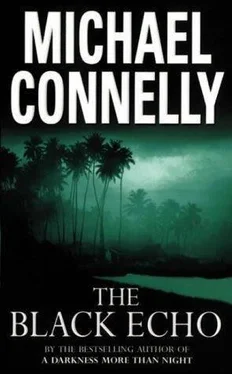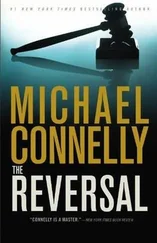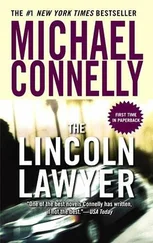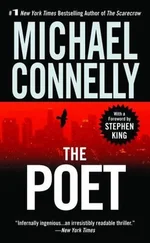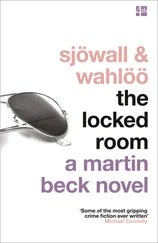Bosch thought about Lewis and Clarke. They must have seen them pick up Sharkey. What part were they playing? Nothing made sense.
“Sharkey was a tough little bastard,” he said. “You think he just went walking with somebody into that tunnel? I think he didn’t have a choice. And to do that, it maybe took somebody with a badge.”
“Or maybe somebody with money. You know he’d go with somebody if there was money in it.”
She didn’t start the car and they sat in it thinking. Bosch finally said, “Sharkey was a message.”
“What?”
“A message to us. See? They leave my card with him. They call it in on a no-trace line. And they do him in a tunnel. They want us to know they did it. They want us to know they’ve got somebody inside. They’re laughing at us.”
She started the car. “Where to?”
“The bureau.”
“Harry, be careful with that stuff about an inside man. If you go trying to sell that and it’s not true, you could give your enemies all they need to bury you.”
Enemies, Bosch thought. Who are my enemies this time?
“I got that kid killed,” he said. “The least I am going to do is find who did it.”
***
Bosch looked through the cotton curtains in the waiting room, down at the veterans cemetery, while Eleanor Wish unlocked the door to the bureau offices. The ground fog had not burned off the field of stones yet, and from above it looked like a thousand ghosts rising from their boxes at once. Bosch could see the dark gash dug into the crest of the hill at the north side of the cemetery but still could not make out what it was. It looked almost like a mass grave, a long gouge into the hill, a huge wound. The exposed soil was covered with black plastic sheets.
“You want coffee?” Wish said from behind him.
“Of course,” he said. He pulled himself away from the curtains and followed her in. The bureau was empty. They went into the office kitchen and he watched as she dumped a packet of ground coffee into a filter basket and turned the machine on. They stood there silently, watching the coffee slowly drip into a round glass pot on the heating pad. Bosch lit a cigarette and tried only to think about the coffee that was coming. She waved the smoke away with a hand but didn’t tell him to put it out.
When the coffee was ready, Bosch took it black and it hit his system like a shot. He filled up a second cup and carried both into the squad room. He lit a cigarette off the butt of the first when he got to his temporary desk.
“My last one,” he promised when he saw her looking.
Eleanor poured herself a cup of water from a bottle she took from her file drawer.
“You ever run out of that stuff?” he asked.
She ignored the question. “Harry, we can’t blame ourselves for Sharkey. If we’re to blame, then we might as well offer every person we talk to protection. Should we go up and grab his mother and put her in witness protection? What about the girl in the motel room that knew him? See, it gets crazy. Sharkey was Sharkey. You live by the street, you die by the street.”
Bosch didn’t say anything at first. Then he said, “Let me see the names.”
Wish pulled out the files on the WestLand case. She rifled through them and pulled out a computer printout several pages long and folded accordion-style. She tossed it on the desk in front of him.
“That’s the master there,” she said. “Everybody who had a box. There are notes written after some of the names, but they probably are not germane. Most of that was if we thought they were scamming insurance or not.”
Bosch started unfolding the printout and realized it was one long list and five shorter lists marked A through E. He asked what they were, and she came around the desk and looked over his shoulder. He smelled the apple in her hair.
“Okay, the long list is like I said, everybody who had a box. It’s an all-inclusive list. Then we did five breakouts, A through E. The first-that’s A-is a breakout on boxes rented within the three months prior to the burglary. Then B, we did a breakout on boxholders who reported no loss at all in the burglary. Then C is the list of dead ends; boxholders who were actually dead or we couldn’t find because of changes in addresses or they had given phony information to rent them.
“Then the fourth and fifth breakouts are matching lists from the first three. D is anybody who rented a box in the previous three months and also reported no loss. E is anybody on the dead-end list who was also on the three-month list. Understand?”
He did. The FBI’s thinking had been that the vault had to have been cased by the thieves before the break-in and that was most likely accomplished by simply going into the bank and renting a box. That way they had legitimate access; the guy who rented the box could go inside the vault anytime he wanted during business hours and have a look around. So the list including anybody who rented a box within three months of the robbery stood a good chance of also including the scout.
Second, it was likely that this scout would not want to draw attention to himself after the robbery, so he might report nothing stolen from his box. So that would put him on the D list. But if he made no report at all or had given untraceable information on his box rental card, then his name would be on the E list.
There were only seven names on the D list and five on the E list. One of the E names was circled. Frederic B. Isley of Park La Brea, the name of the man who had bought three Honda ATVs in Tustin. The other names had check marks next to them.
“Remember?” Eleanor said. “I said that name would come up again.”
Harry nodded.
“Isley,” she said. “We think he was the scout. Rented the box nine weeks before the burglary. The bank records show he made a total of four visits to the vault during the next seven weeks. But after the break-in, he never came back, whoever he was. Never filed a report. And when we tried to contact him we found the address was phony.”
“Get a description?”
“Not one that would do us any good. Small, dark and maybe handsome was about as good as the vault clerks could do. We thought this guy was the scout even before we found out about the ATVs. When a boxholder wants to see his box, the clerk takes him in, unlocks the little door and then escorts him to one of the viewing rooms. When he’s done, they both take the box back and the customer initials his box card. Kind of like at a library. So, when we looked at this guy’s card we saw the initials-FBI. You’re a man who doesn’t like coincidences. Neither did we. We think somebody was having fun with us. Later, it was confirmed when we tracked the ATVs to Tustin.”
Harry sipped his coffee.
“Not much good it did us,” she said. “Never found him. In the debris of the vault after the burglary we were able to find his box. We printed it and the door. Nothing. We showed the vault clerks some mugs-Meadows was in there-and they couldn’t make anybody.”
“We could go back to them now with Franklin and Delgado, see if one of them was this Isley.”
“Yeah. We will. I’ll be right back.”
She got up and left and Bosch went back to drinking coffee and studying the list. He read every name and address on the list, but nothing jogged his memory aside from the handful of names of celebrities, politicians and the like that had safe-deposit boxes. Bosch was going over the list a second time when Eleanor came back. She was carrying a piece of paper, which she slid onto his desk.
“I checked Rourke’s office. He already sent most of the paperwork I turned in over to records. But the hypnosis memo was still in his in box, so he must not have seen it yet. I took it back. It’s useless now and it might be better if he didn’t see it.”
Читать дальше
